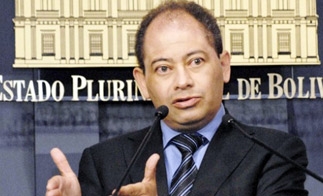Bolivia’s government said it will not allow Brazilian police to eradicate illegal coca crops within its borders, resisting Brazil’s increased efforts to police drug trafficking in the region.
In response to press reports that Brazil·wished to begin carrying out eradication operations in Bolivia, Bolivian Interior Minister Carlos Romero stated that the country had its own drug control policy and would not permit interference from outside forces. Romero did say Bolivia would continue to coordinate its border control actions with Brazil, La Razon reported.
Brazil recently conducted cross-border eradication operations in Peru, destroying some 100 hectares of coca plants.
On August 20, a representative from the United Nations Office on Drugs and Crime (UNODC) in Bolivia called on La Paz to accept international aid in the fight against drug trafficking, alluding specifically to Brazil’s federal police efforts, according to the Council on Hemispheric Affairs.
A Brazilian embassy official in Bolivia stated last December that up to 80 percent of the cocaine produced in Bolivia ends up in Brazil, Latin America’s largest consumer of the drug.
InSight Crime Analysis
As US security aid in the Latin American has shifted its focus to Central America and Mexico, Brazil has stepped up its efforts to halt drug trafficking along its borders, becoming a major player in regional security.
Despite Bolivia’s rejection of Brazilian federal police entering its territory, it has accepted Brazil’s technological assistance in the past to combat drug trafficking and illicit coca cultivation: in January, Brazil donated helicopters and drones to help Bolivia gather intelligence on illegal coca plantations.
The incursion of Brazilian police may be viewed as too expansionist, however, for a country that has historically been very protective of coca consumption’s place in its cultural identity. By keeping Brazilian police out of Bolivian territory, the Bolivian government can retain more control over its “Coca Yes, Cocaine No” policy instituted by President Evo Morales, which allows for up to 20,000 hectares of legal coca production each year.

